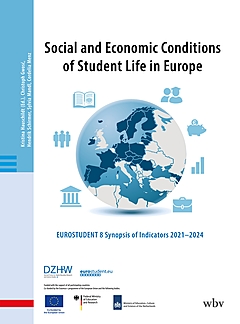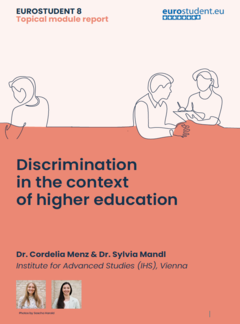Eurostudent
Social and Economic Conditions of Student Life in Europe
EUROSTUDENT Reports
EUROSTUDENT publishes several different types of reports. The latest reports stem from the eighth round of the project (2021-2024). The Synopsis of Indicators offers a full overview of all topics and indicators, whereas the Thematic Review and Short Report are shorter publications focusing on a single topic, or fewer indicators. EUROSTUDENT Intelligence Briefs provide analyses on a single question of interest.
Synopsis of Indicators
EUROSTUDENT 8 2021 - 2024
Social and Economic Conditions of Student Life in Europe
Report
Student well-being
EUROSTUDENT VIII Topical Module Report
EUROSTUDENT VIII Topical Module Report











